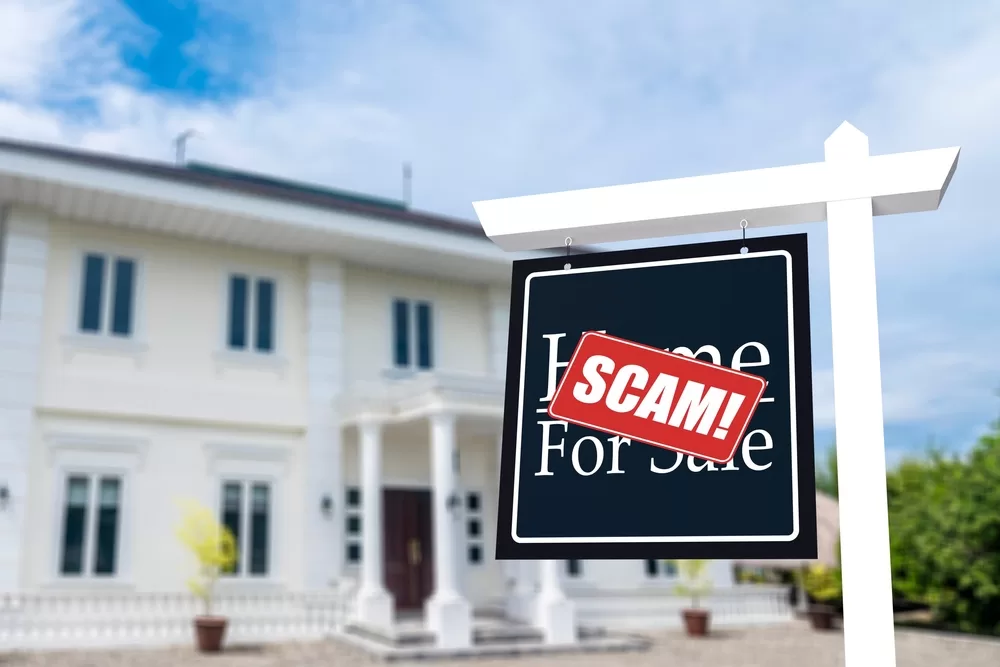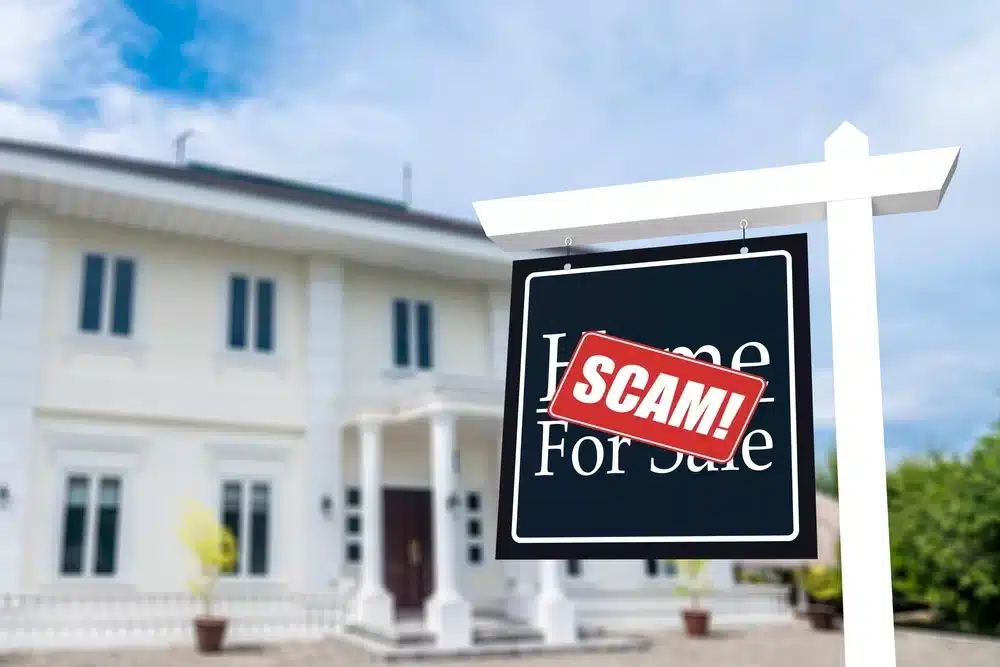The real estate market in 2023 calls for more than just investment savvy; caution and due diligence have become equally essential. Scams have become more sophisticated, making it ever so important for homebuyers and sellers to be on high alert. After all, your hard-earned money deserves the protection of smart decision-making and thorough verification.
Rising Instances of Real Estate Fraud
In Ontario and B.C., there has been a significant uptick in mortgage and title fraud cases, as noted by regulators. This type of illegal activity was not as frequent in the past, but it seems to be an emerging problem that all parties involved in the real estate market should be aware of. Sources from the registrar of the Real Estate Council of Ontario (RECO) add to this concern. They emphasize that while illegal activities in the real estate market have been present, what we’re seeing now is an alarming rate of acceleration.
Interestingly, it’s not just sellers who are at risk. The reports indicate that buyers are more frequently the ones committing mortgage fraud, driven by increasing interest rates and stringent mortgage stress tests. The conditions for obtaining a mortgage have become stricter, pushing some individuals into the territory of falsifying information to secure a loan.
The Devastating Impact of Fraud
Falling victim to any real estate scam can have severe, long-lasting repercussions for all involved. Homebuyers, defrauded homeowners, and real estate agents are all susceptible. What makes it particularly serious is that resolving these fraudulent activities is not a straightforward process. Legal routes can take years as courts painstakingly unravel the intricate details of title fraud cases, often leaving the true homeowners in legal limbo.
Even in situations where a homeowner has title insurance and may get some level of compensation, the financial and emotional toll can be significant. Furthermore, the penalties for falsifying a mortgage application are not trivial. They can range from hefty fines to criminal charges, not to mention the long-term damage to one’s credit score, which can affect the ability to engage in future real estate transactions.
Fraud Prevention Measures
Safeguard Important Documents
Securing documents that you sign in the course of a real estate transaction is essential because these papers often contain highly sensitive information. For instance, your Social Insurance Number, financial records, and other personal details are often part and parcel of such transactions. Unauthorized access to these documents creates a high risk of identity theft or mortgage fraud.
In some instances, an incomplete mortgage application can be lethal in the wrong hands. Someone with malintent can effortlessly apply for a loan using your information. Professionals in the industry underscore the importance of preserving copies of all documents that bear your signature. This practice not only safeguards against unauthorized transactions but also serves as evidence should any legal discrepancies arise.
Understand Legal Agreements
The complexity of real estate documents can make it tempting to quickly skim through them and append your signature where required. However, this is exactly the sort of behavior that fraudsters prey upon. Any misunderstanding or oversight can result in signing a document that is not in your best interest, potentially causing significant financial loss or even legal repercussions. Experts advise involving professionals when in doubt. Whether it’s a questionable clause or concerns about the legitimacy of a prospective buyer or seller, a real estate lawyer can offer the most reliable guidance.
Other options include trusted realtors and mortgage brokers who can offer second opinions on whether something is amiss. The critical takeaway here is never to leave anything to chance. Take your time to comprehend every document, and don’t hesitate to seek expert advice to confirm your understanding. Given the rising rates of fraud, due diligence is no longer an option but a necessity for a secure transaction.
Utilize Reliable Online Platforms for Property Search
Given the spike in fraudulent activities, it’s more important than ever to turn to dependable sources when searching for a home. Trusted platforms often have stringent verification processes for listings, making it less likely for buyers to encounter scams. One such reliable platform is Wahi. This platform specializes in offering verified properties through its Wahi homes for sale listings in Ontario and provides comprehensive information to prospective buyers.
Many professionals and experts suggest that buyers use verified platforms for both property searches and transactions, as they often have a network of vetted real estate agents and mortgage brokers. The additional peace of mind these platforms provide can be invaluable, given the heightened risks associated with real estate transactions. By sticking to reliable sources like this for your home search, you minimize the likelihood of becoming a victim of fraud.
Verify the Identity of Other Parties
In any real estate transaction, knowing who you’re dealing with is not just good practice, it’s vital. This is increasingly important as instances of identity fraud in property transactions are on the rise. The financial industry has set a precedent with the concept of ‘Know Your Customer’ (KYC), and this concept is gradually becoming indispensable in real estate as well. Before any financial exchange or signing of agreements, make sure to ask for identification. Experts emphasize the need to validate the identity of both buyers and sellers, especially if physical meetings are not possible.
You can conduct a basic search on social media platforms or use online search engines to look for public records that match the name and details provided by the other party. Additionally, in Ontario, you can consult land property records to confirm the owner’s identity as per the official deed.
Be Cautious with Joint Ventures
Going into a joint venture when applying for a mortgage or buying a property may seem like a mutually beneficial opportunity. However, many professionals warn that these arrangements are often exploited by individuals with dishonest intentions. In many cases, a person may offer to apply for a mortgage on your behalf in exchange for cash or propose a scheme where profits from reselling a property would be shared.
While these transactions can sometimes be genuine, they often end in disaster when conducted with someone you don’t know well or are not related to. Such ventures could result in accumulating debts, facing criminal charges, or becoming embroiled in lawsuits after the dishonest party vanishes.
Act Quickly If Suspected Fraud Occurs
Discovering that you are potentially the victim of a scam in a property transaction can be disheartening and stressful. However, immediate action is vital for the best chance at mitigating damage. RECO advises contacting their office as the first line of defense. Additionally, reaching out to local authorities and specialized anti-fraud units can bolster your case.
For those in Ontario, the Canadian Anti-Fraud Centre is a valuable resource, and they recommend keeping all relevant documentation, including any correspondence like emails or text messages, as these can be useful in investigations. Changing all your passwords is also advisable to prevent further identity theft. Lastly, keeping your bank or financial institution informed can help freeze or monitor any suspicious activities on your accounts.
Spread Awareness About Real Estate Fraud
Talking openly about fraud can be a sensitive subject for many people, especially those who have been directly affected. The instinct might be to keep such experiences private due to embarrassment or fear of judgment. However, openly discussing these matters has far-reaching benefits that extend beyond the immediate circle of the victim. According to the Canadian Anti-Fraud Centre, victims should tell their family, friends, neighbors, and even co-workers about what has happened to them. The rationale behind this is simple yet potent: awareness is a potent tool against fraud.
By sharing experiences and information about how the scam was executed, individuals arm those around them with the knowledge to recognize similar schemes. This simple act of sharing could serve as the red flag someone needs to avoid becoming the next victim. Moreover, a collective awareness creates a more vigilant community, making it harder for fraudsters to operate successfully.
Public discourse about fraud also has a ripple effect that could influence how seriously these crimes are taken at institutional levels. The more people discuss these fraudulent activities, the more likely they are to come to the attention of regulatory bodies like RECO and law enforcement agencies. This could potentially lead to improved legislation, stronger regulations, and more proactive anti-fraud measures.
Therefore, as the Canadian Anti-Fraud Centre advises, speak openly about any fraudulent activities you encounter. While it may feel like an uncomfortable topic, your openness could protect someone else from falling prey to similar pitfalls, thus fortifying the community’s defenses against such dishonest schemes.
The Bottom Line
Being vigilant and informed are key elements in sidestepping real estate scams this year. The strategies outlined above are more than mere suggestions; they are essential practices. Implementing these measures can make the difference between a wise investment and a costly mistake. Ensure that you consult with verified professionals, scrutinize documentation, and remain updated on legal regulations. The stakes are too high to be complacent; act responsibly to safeguard your investments.
Jamie is a 5-year freelance writer who enjoys real estate. He is currently a Realty Biz News Contributor.



